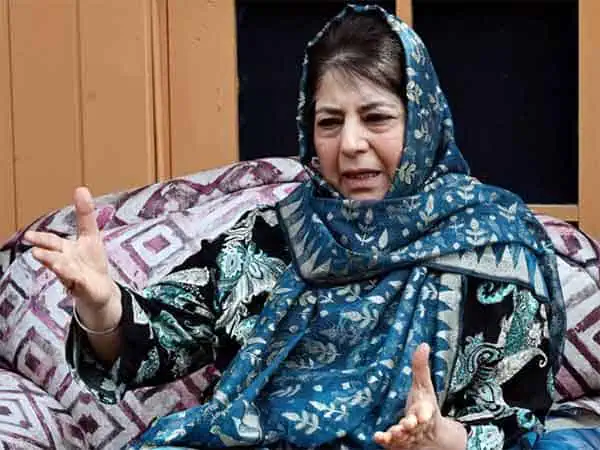The People’s Democratic Party (PDP) on Tuesday submitted a fresh resolution in the Jammu and Kashmir Legislative Assembly demanding the repeal of the Waqf (Amendment) Act, 2025, calling it a direct attack on the rights and dignity of India’s Muslim community.
Party President Mehbooba Mufti condemned the legislation, stating that it “transcends matters of faith” and constitutes an assault on the identity of 24 crore Muslims in the country.
“The Waqf issue is not just religious. It’s about dignity, rights, and identity,” Mufti posted on X, tagging J&K Chief Minister Omar Abdullah.
“As the only Muslim-majority region, Jammu and Kashmir must rise to the occasion and defend the rights of its people.”
Assembly Chaos Over Resolution
The situation in the Assembly turned chaotic when the Speaker denied an adjournment motion to discuss the Act under Rule 58, citing that the issue is sub judice.
This triggered a protest by Opposition parties including PDP and Awami Ittehad Party (AIP).
PDP MLA Waheed Para was marshalled out of the Assembly while protesting the move.
“We’re not just fighting for mosques and dargahs—we’re fighting for our identity,” Para told reporters outside the House.
“The NC-led Government is facilitating BJP’s agenda while silencing Muslim voices.”
Political Firestorm
Mufti’s sharp remarks and the Assembly ruckus come after Union Minister Kiren Rijiju tabled the controversial Bill, which the PDP has labeled “anti-Muslim and anti-democratic”.
Mufti accused the J&K Government of being complicit with the BJP, stating that the ruling alliance is failing to protect minority rights.
Waqf Act Under Legal Scrutiny
The Waqf (Amendment) Act, 2025, passed by Parliament recently, has drawn national outrage.
Multiple political and religious organisations—including AIMIM, Congress, and several Muslim bodies—have filed petitions in the Supreme Court against the law’s implementation.
Opposition parties argue that the Act centralizes control of Waqf properties under the Union Government, undermining the autonomy of local Waqf boards, especially in sensitive regions like J&K.
What’s Rule 58?
As per Rule 58 of the Jammu & Kashmir Assembly procedures, no matter under judicial consideration can be discussed in the House.
However, PDP leaders argue that the Assembly has full constitutional authority to pass resolutions expressing dissent against Union laws—especially those with socio-religious implications.
“There is no law stopping the Assembly from speaking up,” Para said.
“You’re giving up on our religious identity, and ashamed of speaking for Muslims.”
A Brewing Political Storm
With over 20 MLAs backing the resolution and growing legal challenges in the Supreme Court, the Waqf Act is emerging as a major flashpoint in both regional and national politics.
While the Centre remains silent, J&K’s political fabric is rapidly polarizing, raising questions about representation, autonomy, and religious rights.
As protests grow and legal pressure mounts, all eyes are now on the Supreme Court—and on the political will of the J&K Assembly to take a united stand.


